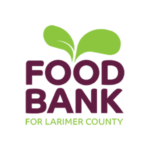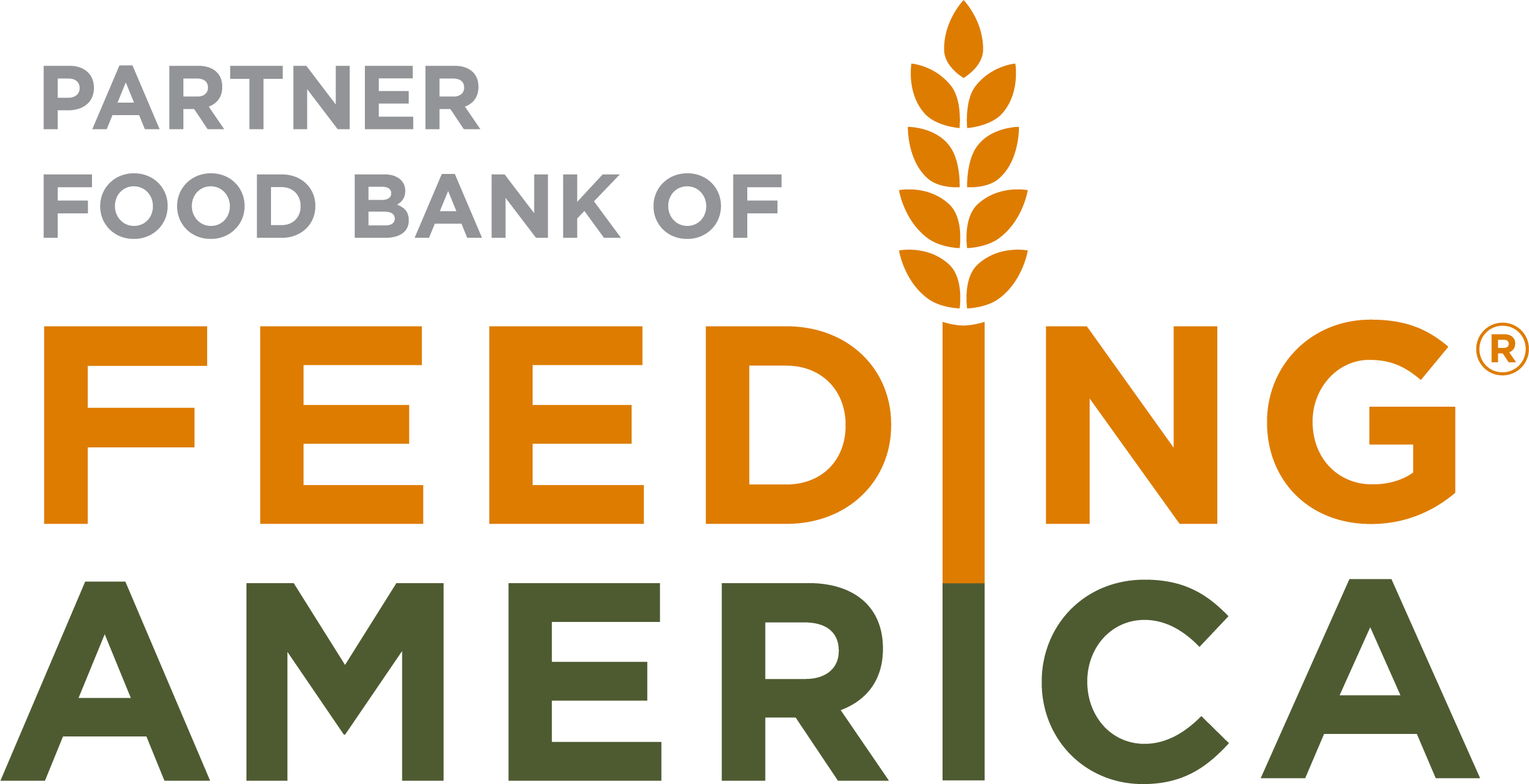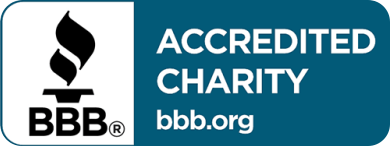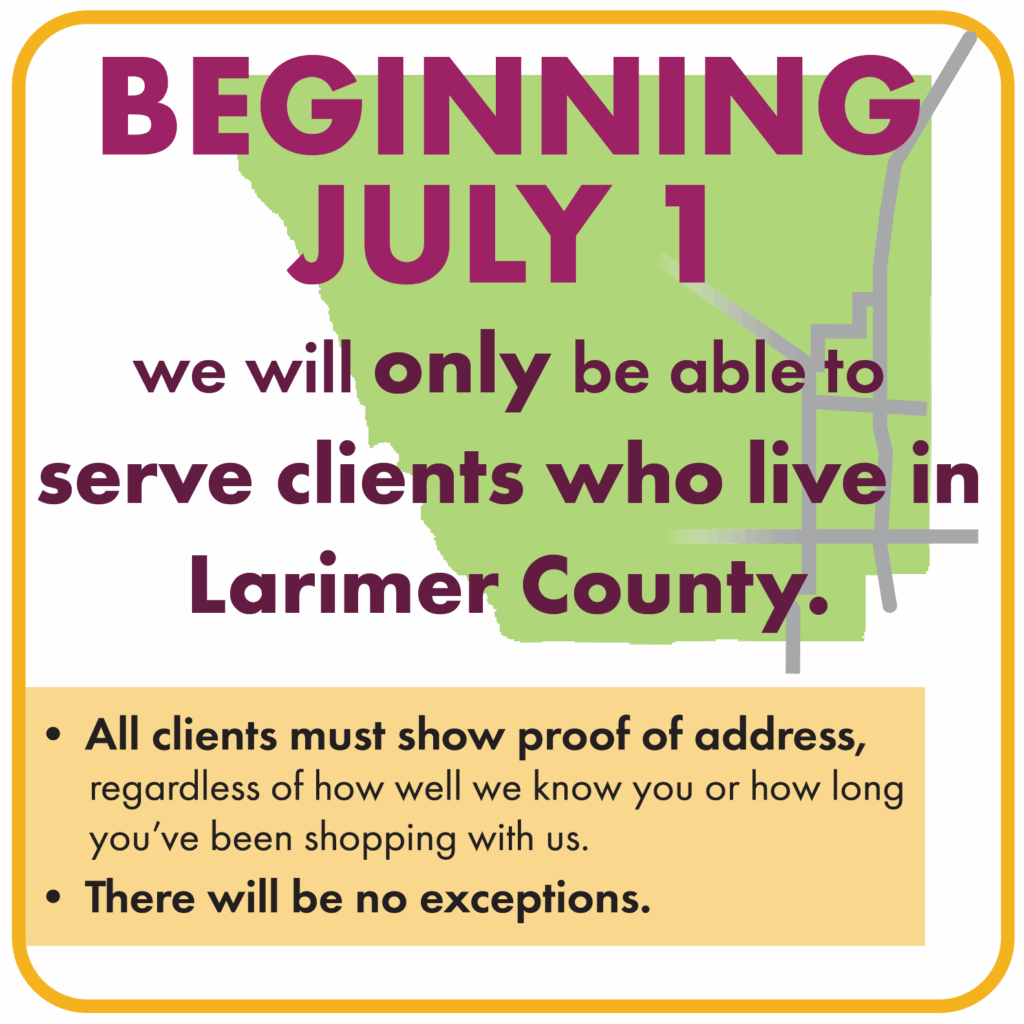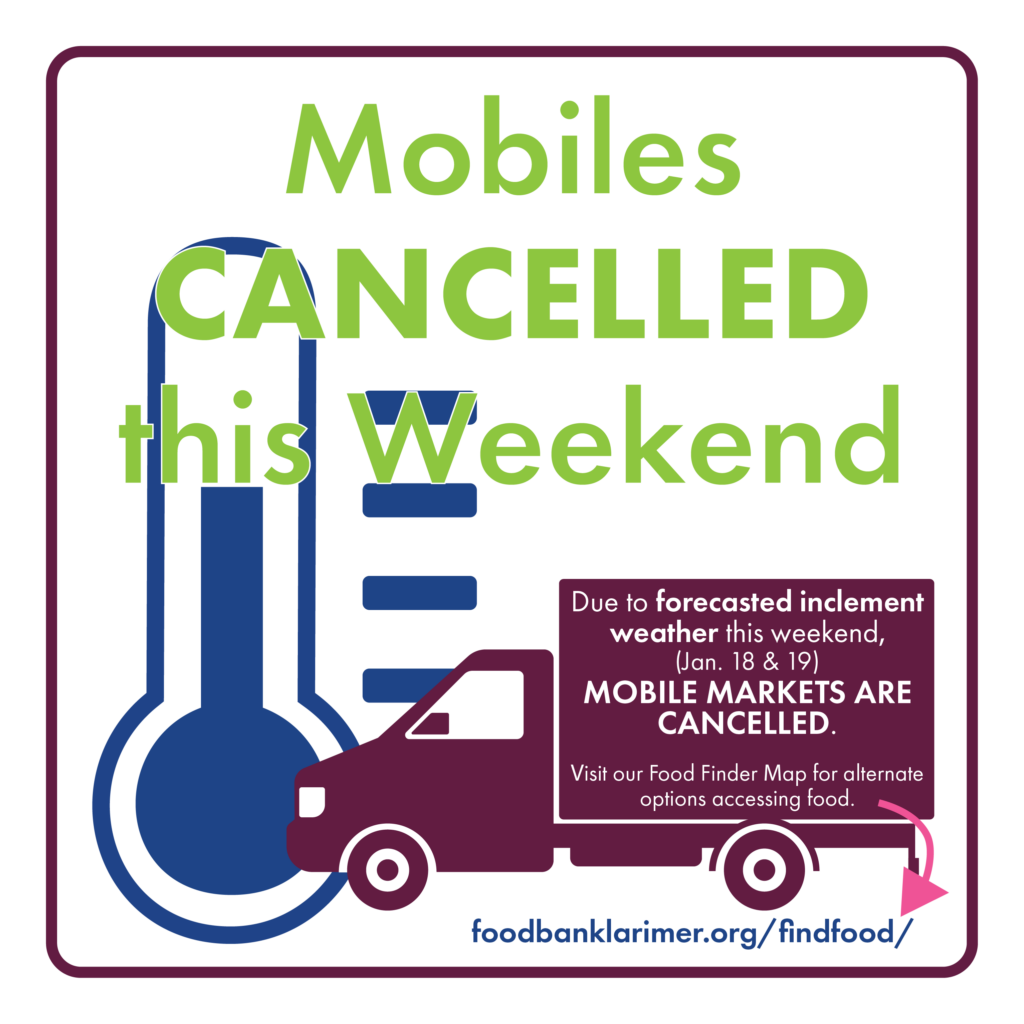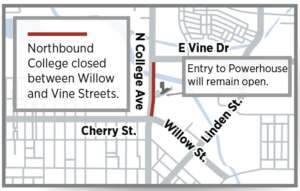National Hispanic Heritage Month is September 15 – October 15; it is a time to celebrate the histories, cultures and contributions of Americans whose ancestors came from Spain, Mexico, the Caribbean, and Central and South America.
The day of September 15 is significant because it is the anniversary of independence for several Latin American countries. In addition, Mexico and Chile celebrate their independence days on September 16 and September 18, respectively. Finally, Day of the Races or Día de la Raza, which is October 9, falls within this 30-day period.
Federal Reserve Board data show that Black and Latino families experience a vast gap in median wealth compared to white families. Within the past couple of years, more attention has been given to the role of systems and policies that keep certain households and communities food insecure. For example, Black and Latino families have considerably less wealth than white families do. Latino families wealth is only about 20 percent of the typical white families’ wealth ($61,000 vs. $285,000). These persistent racial gaps that are rooted in a history of structural and systemic racism contribute to the food insecurity disparities we see today.
Latino children are nearly twice as likely to lack access to sufficient nutritious food as non-Latino white children are. This is due to a multitude of reasons including their parents’ limited access to transportation, being paid subminimum wages, and working longer hours to make ends meet. At a national level, more of these discrepancies can be connected to language barriers and fewer opportunities to pursue higher education or complete a degree when they do.
Less income to purchase nutritious foods and essential health care contribute to higher rates of serious medical problems among Latinos, including cancer, obesity, and diabetes.
In Larimer County, the most recently measured food insecurity rate for Latino individuals was 20%; this is compared to 10% for those who identify as white, non-Hispanic, and 11.1% overall.
More people with marginalized identities are seeking food assistance.
Here at the Food Bank for Larimer County, the percentage of clients who are members of marginalized communities is steadily increasing. In 2024 (fiscal year end), 55% of our clients identified as white, non-Hispanic. This is up from 48% (FYE 2023), 42% (FYE 2022), and 38% (FYE 2021).
Food Bank for Larimer County Client Demographics
| TOTAL NUMBER of individuals served by FBLC programs & partners | PERCENT of clients who are members of marginalized communities | |
| FYE 2024 | 50,819 | 55% |
| FYE 2023 | 40,009 | 48% |
| FYE 2022 | 29,559 | 42% |
| FYE 2021 | 23,782 | 38% |
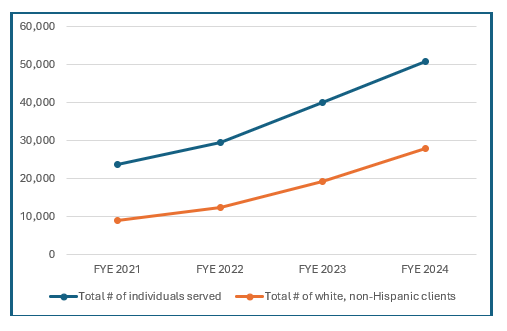
As we see these numbers increase, we are aware that we need to also increase and broaden our abilities to support all people who need our services. For example, we intentionally seek out staff and volunteers who speak Spanish and work to be more inclusive in our communications.
Many eligible Latino families don’t enroll in SNAP; the total number of applications is decreasing.
Even though our Latino community members face food insecurity at higher rates, they are less likely to enroll in the Supplemental Nutrition Assistance Program (SNAP) program (source).
This year, we hosted six focus groups with clients. We hosted six groups in the summer about shopping at our Fresh Food Share No-Cost Markets, and six in the spring that were specifically designed to understanding the collective feelings and opinions about SNAP benefits.
After coding and analyzing all the focus group data, the following common themes emerged as the main reasons people don’t apply for SNAP benefits:
-
- The process of applying and items and documents needed to apply and qualify is too confusing.
-
- Fear that applying for SNAP will trigger something else bad happening as a result.
-
- This includes fear of personal information being used against them, their residency/legal status being affected, the loss of other benefits, etc.
-
- Fear that applying for SNAP will trigger something else bad happening as a result.
-
- Belief the whole system is rigged and people don’t actually want to help those in need.
-
- The SNAP process is lengthy, overly complex, and difficult to understand; applying isn’t worth it.
-
- Many believe they cannot receive both SNAP and Medicaid benefits at once; if they have one and apply for the other, the one they currently receive will be taken away.
-
- This is myth, by the way. Many families who qualify for Medicaid are also eligible for SNAP. For example, most children in families with incomes below 130% of the federal poverty line qualify for Medicaid or the Children’s Health Insurance Program (CHIP).
-
- Many believe they cannot receive both SNAP and Medicaid benefits at once; if they have one and apply for the other, the one they currently receive will be taken away.
What you can do
By taking action, supporting initiatives, and advocating for change, we can make strides toward a more equitable and just society where everyone has access to the nourishment they need to thrive.
-
- Know and share that we offer SNAP outreach services.
We employ staff members whose primary purpose at work is to inform current and potential clients about the Supplemental Nutrition Assistance Program (SNAP) program and help signing up for the program. It’s as easy as scheduling an appointment with a member of the Food Bank’s SNAP Outreach team to see if you are eligible.
- Know and share that we offer SNAP outreach services.
-
- Be aware and share.
Simply being aware of the rates of food insecurity in the area you live is important. We all play a part in community awareness and making change
- Be aware and share.
-
- Volunteer with us.
Be a part of the change by donating your time to our programs and services. We welcome people of all identities, and always have a unique need for volunteers who speak a second language. According to our clients, Spanish-speaking staff and volunteers offer a unique and special sense of belonging when they visit.
- Volunteer with us.
The fight against food insecurity within the Latino community is part of a broader movement to combat hunger and food waste, not only among Latino individuals but also among other marginalized communities.
